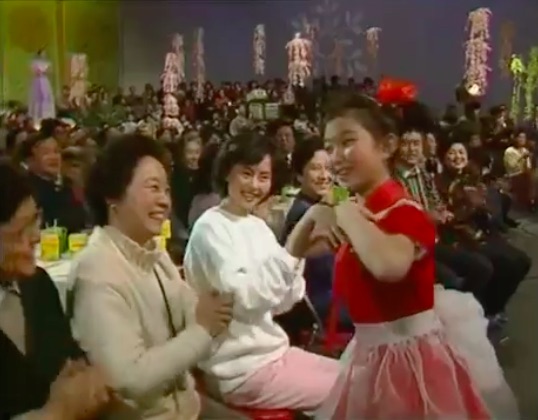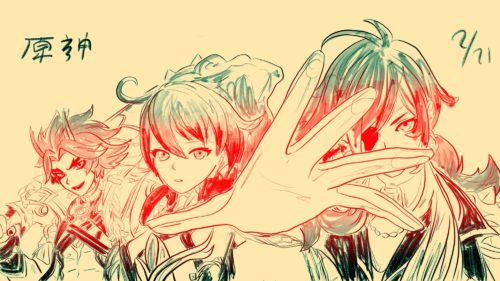Friday Song: 歌声与微笑 — when a children’s song could unite a country

Welcome to Friday Song, a new feature in which we spotlight a different Chinese song every week across all genres and time periods.
We’ll kick it off with a classic of children’s music, a tune that has transcended its classification in the way of “Danny Boy” or “You Are My Sunshine”: 歌声与微笑 (Gēshēng yǔ Wéixiào), i.e., “Song and Smile.”
The song was introduced in 1986 to great fanfare at the inaugural Shanghai TV Festival, performed by Shanghai’s Little Twinkling Star Children’s Choir (小荧星儿童合唱团 Xiǎo Yíngxīng Értóng Héchàngtuán). If you haven’t heard it yet, give yourself time: It has aged beautifully, seeping a little further into the fabric of canon with each passing year, into the subconscious of the collective.
And why not? All the elements of a Chinese classic are there: hummability, flowing legato punctuated with triumphant finishing notes, hard end-rhymes (家 jiā and 下 xià). But there are unexpected delights built into this earworm, like the somewhat atypical abbcbbdbb rhyme scheme, or the words in the second verse that feel crammed into the frame of the melody, snug as a family unit gathered around an 1980s Hisense TV.
Such is “Song and Smile’s” appeal that updated versions of it — on the piano, in this adorable cartoon, on whatever God’s psychedelic versicolored earth is happening here — are as enticing as the original. But for my money, the best rendition is the one by the Galaxy Youth Troupe (银河少年歌唱团 Yínhé Shàonián Gēchàngtuán) at the 1989 CCTV Spring Festival Gala, which took “Song and Smile” from merely beloved to universally known. The video is embedded above.
Everything in that clip looks different. Everyone looks happy to be there, from the audience to the cameramen. This was, of course, before China’s national Spring Festival Gala ballooned into a five-hour megashow, with way too many skits on way too big a stage (that choreographers always feel compelled to fill at one time or another with approximately a million costumed children). This performance is as relatively understated as its message of kindness and generosity is straightforward. A ragtag choir — well rehearsed, sure, but ragtag all the same by modern standards, because look at those non-matching outfits, look at the kids’ nonuniform heights, or the fact that the first and second rows don’t line up — sings. They sing, and the audience claps. Smiles abound.
In the days, weeks, and months that followed, “Song and Smile” became known as an anthem of sorts for the harmony between the young and the elderly. But let’s linger a moment on that modest stage in February 1989, when the energy felt authentic, the goodwill palpable. Watch the young girl who serenades the row of elderly women at the one-minute mark, singing, “Please bring my song back to your home.” It’s enough to feel in the moment, that moment. Those were truly different times, when a children’s song could unite a country. Listening now, I can kind of almost remember.
请把我的歌 Qǐng bǎ wǒ de gē
带回你的家 dài huí nǐ de jiā
请把你的微笑留下 Qǐng bǎ nǐ de wéixiào liú xià
Please bring my song
back to your home
Please leave your smile here
明天明天这歌声 Míngtiān míngtiān zhè gēshēng
飞遍海角天涯 Fēi biàn hǎi jiǎo tiānyá
飞遍海角天涯 Fēi biàn hǎi jiǎo tiānyá
Tomorrow, tomorrow, this song
Will fly to every corner of the world
Will fly to every corner of the world
明天明天这微笑 Míngtiān míngtiān zhè wéixiào
将是遍野春花 Jiāng shì biànyě chūnhuā
将是遍野春花 Jiāng shì biànyě chūnhuā
Tomorrow, tomorrow, this smile
Will become spring flowers all over the fields
Will become spring flowers all over the fields
Friday Song is The China Project’s weekly sign-off. Let us know what you thought of the week that was in the comments below, or email editors@thechinaproject.com.






